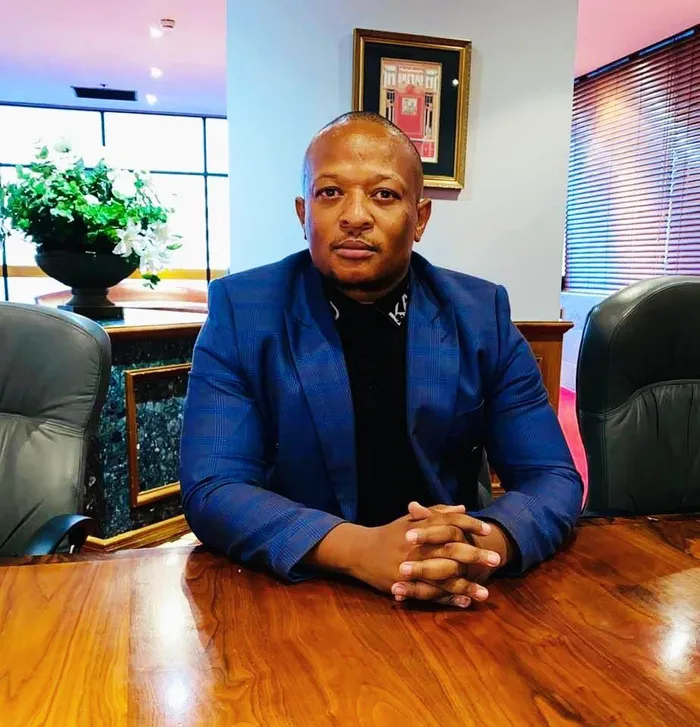
Sifiso Mahlangu, Editor of The Star
Image: Supplied
The recent news that Helen Zille, the Democratic Alliance’s (DA) federal chairperson, will be running for mayor of Johannesburg in the 2026 local elections is sending shockwaves through both the party and the broader political landscape.
Whether Zille will make it is debatable, but the mere suggestion has already reignited long-standing questions about the DA’s internal politics, its commitment to transformation, and its approach to leadership in diverse, urban constituencies like Johannesburg.
At the heart of the controversy lies an uncomfortable truth: the persistent tension around race and trust in black leadership within the DA. Over the years, the party has struggled to shed its image as a white-dominated institution, despite sincere attempts at diversification.
Figures such as Mmusi Maimane and Solly Msimanga have embodied a more inclusive DA, often reaching communities historically alienated from the party’s liberal-centrist brand. But each time the DA makes progress in this direction, it appears to recoil through resignations, internal purges, or the reassertion of its traditional power structures.
The rumours of Zille’s potential candidacy bring this dynamic into sharp relief. If the DA is truly committed to building a party that reflects South Africa’s demographics and embraces a new generation of leadership, why would it even entertain the idea of recycling a former leader — a 74 year old white woman from the Western Cape whose public statements have drawn fire for defending colonialism and showing tone-deafness on race?
Johannesburg is no ordinary metro. It is the country’s economic engine, its most populous and racially diverse city, and one of the toughest political battlegrounds in South Africa. The city is riddled with coalition instability, service delivery failures, and deep public distrust. Governing it requires more than administrative competence; it requires legitimacy — legitimacy earned through understanding, representing, and being trusted by the people of Johannesburg.
Solly Msimanga, former mayor of Tshwane and a senior DA figure in Gauteng, is arguably the kind of leader who fits this bill. So why isn’t his name leading the conversation?
Critics argue that the party may be reverting once again to what has been dubbed “the white fallback” — the tendency to embrace black leadership in principle, only to sideline it when key decisions or high-stakes posts are on the table. The optics of Zille parachuting into Johannesburg from the Western Cape, where the DA enjoys a more comfortable support base, are troubling. It gives the impression that when the DA is in trouble, it turns not to renewal, but to rescue by the old guard.
More dangerously, it sends a disheartening message to young black leaders within the party: that upward mobility is conditional; that you’re acceptable until the stakes get too high, at which point “the Madam” steps in to take over. This isn’t just about Zille. It’s about what her candidacy would represent in the broader context of South African politics.
The DA has long positioned itself as the alternative to ANC misrule. But if its internal decision-making continues to entrench a top-heavy, Western Cape-centric, racially skewed power structure, that alternative starts to look hollow. Already, some within the DA, though mostly behind closed doors, are expressing unease about what Zille’s return to an executive role could mean for party unity. After years of high-profile exits, leadership clashes, and electoral underperformance, the DA has only recently begun to stabilise. Reopening those wounds now would be a risky gamble.
Zille herself has insisted that her role in the DA is about principles and values rather than personal ambition. She has also argued that competence should take precedence over identity politics. But in South Africa, with its deeply racialised past and present, leadership and identity are not so easily separated. Representation is not just symbolic; it’s a powerful signal of political trust and commitment to democratic transformation.
If the DA wants to be taken seriously as a party ready to govern at a national level, it must demonstrate that it is capable of genuine evolution.
That means empowering a new generation of leaders who reflect South Africa’s demographics, understand its challenges from lived experience, and are capable of building trust in communities where the DA still struggles to gain traction. It means breaking away from the habit of reverting to the same familiar faces when pressure mounts.
The decision to consider or reject Zille’s candidacy won’t only affect Johannesburg. It will send a message to every DA supporter, volunteer, and potential voter about what kind of party the DA is, and what kind of future it envisions. A return to old leadership may win a short-term tactical advantage in Johannesburg, but it risks long-term strategic damage to the party’s credibility and relevance.
The DA stands at a crossroads. It can double down on the past or clear the path for a future that looks, feels, and leads differently.
Zille may be experienced, but her re-entry into executive politics, particularly in Johannesburg, could be one move too many. It risks deepening internal fractures and undermining the inclusivity the party claims to champion.
In the end, the real question is not whether Helen Zille wants the job. It’s whether the DA can afford to reinforce the perception that, when it matters most, “the Madam always gets what she wants.”